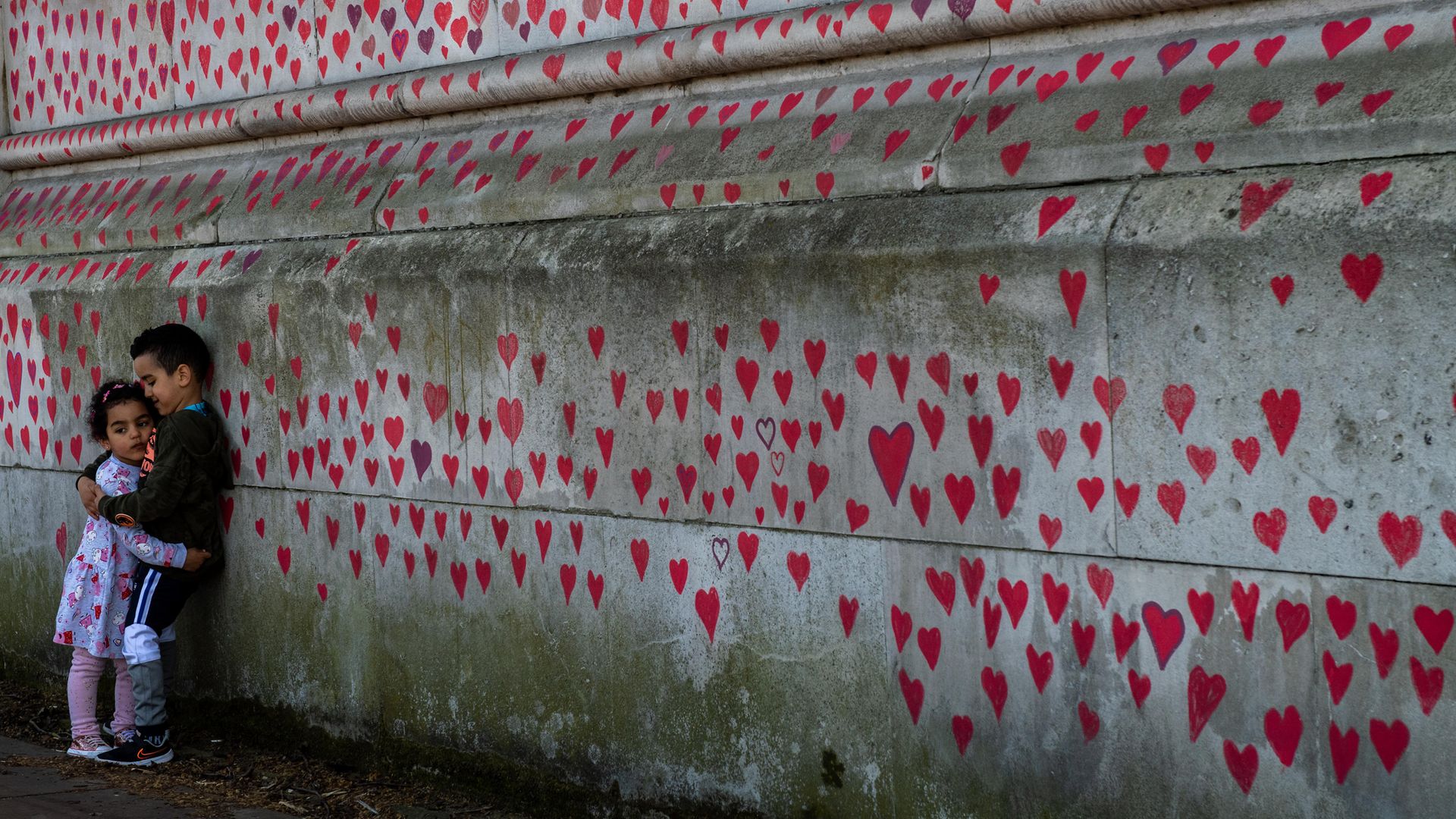
Covid has been characterised by the asymmetry of the suffering it has caused. So as the country opens up once more, how can it come together again?
There have been two jarring stories in Covid news recently. The first was the testimony of Dominic Cummings, which crescendoed with the statement “thousands of people died who needn’t have died”.
The second was a study from the Nielsen Corporation, drilling into how people really used their time, while working from home: drinking; smoking weed; dating and/or having sex; online shopping; side-hustles; Netflix; porn; and the marvellously unspecific “being away from their computers”.
Neither of these was at all revelatory; not even the juxtaposition was surprising. We all know that people living side by side have had radically different experiences of this pandemic.
Hundreds of thousands of people have lost loved one prematurely, suddenly, unjustly. Some have lost multiple family members, others have seen their entire neighbourhoods reshaped by grief.
Millions of others have lost no-one, and could only trace the contours of the emergency through which police procedural drama they were watching when.
By spring of this year, 813,000 people had lost their jobs. There are five million on furlough, some of whom know it’s a waiting room for redundancy. Hundreds of thousands of workers, particularly for the NHS, have worked so hard they’re at breaking point.
Hundreds of thousands of others are confident of a return to normal after a bizarre but not unwelcome break. People with serious mental illnesses have seen their conditions worsen – for those with eating disorders in particular, the year has been unimaginably hard.
Millions have been shielding and isolated. Millions, conversely, have seen their friendships deepen and change. Millions have struggled to keep their children fed. Hundreds of thousands have figured out how to make a sourdough from scratch.
Some 400,000 people may face homelessness at the end of June, when the eviction freeze ends. Thousands of others have used their lockdown savings to buy second homes.
Millions have discovered, too late, what really mattered. Millions of others have discovered how good the pad Thai is from the place round the corner. There is simply no etching away the asymmetry of the country’s experience over the past year, and if we try to, the result will be a lasting and destructive schism.
It is unignorable, too, that this asymmetry was often caused by pre-existing inequalities; that the racial disparities in mortality were driven not by any biological trait but by the high proportion of those on the front line who were BAME; that people in overcrowded housing, people who relied on grandparents for childcare, people who couldn’t afford to self-isolate, suffered more death and bereavement.
Structural factors collided, and sometimes didn’t collide, with dumb luck; it’s impossible to say from here what gave some long Covid and others not, what tips that into a life-changing post-viral event.
Not everyone’s misfortune has been the same. It is no lesser tragedy to have missed a cancer diagnosis due to the Covid wave in hospitals than it is to have been part of the wave. Some people’s misfortunes are not yet known, and some look trivial compared to dying, but are not trivial; the A level students who lost out with their made up grades, the university students whose experience has been fraught and muted.
If we were to draw up a hierarchy of who has lost the most, trying to build a formula for comparison, between degrees of ill-health, disability and hardship, between types of loneliness and frustrated hopes, the in-fighting is potentially limitless, and there would be no winner.
Here’s some unexpected wisdom from the world of the blind date: wondering what the form was, if you went on a date having just lost a parent, and the person you met was complaining that lockdown had totally kiboshed the festival season – or vice versa – one etiquette expert, Debora Robertson, said: “‘I’m sorry that happened to you’ is a full sentence. You don’t need to draw it back to yourself with a sort-of similar experience, or ask more questions, or shut it down.”
What sounded like a point about manners was actually a point about empathy; before you can empathise, you need to listen. To extrapolate that to the public sphere, we need to listen to personal testimonies, unmediated, uninterrupted: to actually hear what people have been through, without trying to minimise it, or generalise from it, or move on.
The evocation of Blitz spirit is typically the start of some horrible politics, but there is something useful to be learnt from the Blitz’s aftermath.
The country faced a similar asymmetry, then between urban areas which had witnessed horrific loss of life, and rural ones which had not. The real prospect of unrest, particularly in London, was forestalled not by trying to marry those two experiences and pretend they were the same, under some “all in it together” platitude, but to make the devastation mean something.
The practical, bricks-and-mortar business of recovery was rolled into the wider ideological purpose of creating a welfare state. The parallel isn’t exact, but the principle is: if the pandemic hit citizens unequally, that cannot be repaired, but it can be acknowledged by addressing the existing inequalities that caused it to.
It is sheer lunacy to protect landlords, in 2021, at the expense of tenants; to prioritise employers over employees; to effectively penalise healthcare workers with low wages; to blame specific communities for poor vaccine take up, when if we want to divide the country community by community, it should only be to redress the imbalances that hit some harder than others.
As a plea to a feckless government, of course, this would be fruitless, like asking a lion ever so nicely to go vegan.
No, this is about building an irrefutable social demand, an idea of what constructive recovery would look like. The question of how to make it reality will unfold as it develops; all we know for sure now is that, without it, the enormity of what just happened will become unsayable, a corrosive secret that everybody knows.
What do you think? Have your say on this and more by emailing letters@theneweuropean.co.uk










